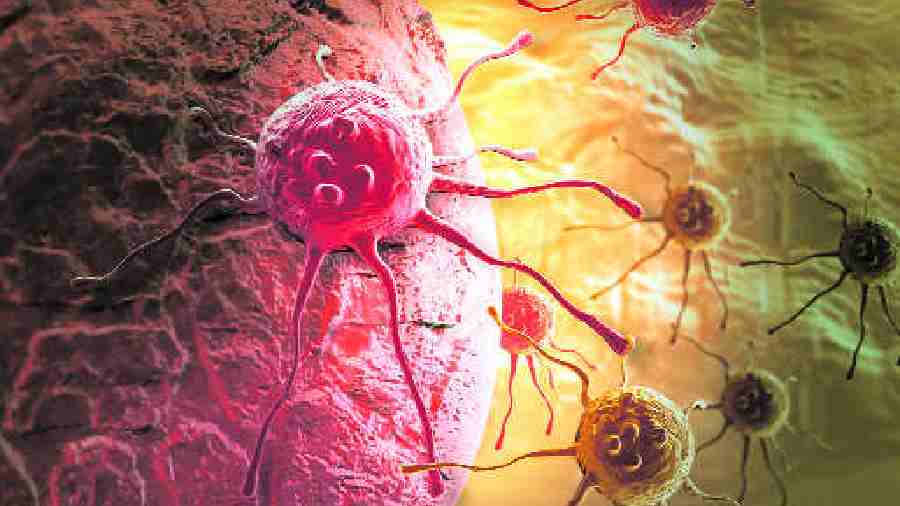A parliamentary panel has asked the Centre to provide free cancer treatment to middle-class households through a government-funded health insurance scheme and to cap cancer diagnostics and treatment services in government and private hospitals.
The parliamentary standing committee on health has also called on the government to take steps to strengthen radiotherapy facilities in the country, expressing concerns about inadequate infrastructure and long waiting times that are contributing to poor cancer survival.
The panel, in a report on cancer management in the country and tabled in Parliament earlier this week, asked the health ministry to include middle-class households among the beneficiaries of the Ayushman Bharat Pradhan Mantri Jan Aarogya Yojana (PMJAY) for cancer treatment.
The PMJAY, launched in 2018, provides poor households with hospitalisation cover of up to Rs 500,000 per year. The panel said expanding the list of beneficiaries to offer middle-class households treatment for cancer could help avert middle-class families of cancer patients “from going into penury.”
The report comes amid mounting evidence from medical studies across the country that cancer treatment costs can lead to the accumulation of debts, poor compliance with prescribed therapy, and household members entering the job market prematurely to help with living costs.
A study of 3,012 patients from Haryana, Punjab, and Uttar Pradesh under treatment for cancer between 2017 and 2019, for instance, found that 52 per cent of patients or their families had to borrow money and 12.5 per cent had to sell assets for treatment.
Cancer specialists say treatment costs would depend on the site and the stage of cancer but could range anywhere from Rs 30,000 to Rs 50,000 for early-stage cancer to over Rs 50 lakh for certain socalled targeted therapies.
The parliamentary panel has called on the government to not only regulate the costs of medicines but also regulate the cost of diagnostics, treatment and services charges rendered not only in government but also in private hospitals.
In a section of the report on accessibility and affordability of cancer care, the panel underscored concerns that gaps in the radiotherapy infrastructure in the country and long waiting times could be contributing to “poor survival.”
India has only around 700 teleradiotherapy machines, instead of the required 1,300 machines under World Health Organisation norms of one machine per one million population. And radiotherapy is currently available only in 100 districts, making patients travel long distances for treatment.
The panel has noted that India has only 1.5 radiation oncologists per million population compared to 20 radiation oncologists per million in the US and only 3 linear accelerators per 10 million people in contrast to the world average of 18 per 10 million.
The panel has asked the health ministry to work on mechanisms to ensure that radiotherapy machines are imported or assembled in the country, noting that the high cost of radiotherapy in the private sector is mainly because machines are imported.
The Bhabha Atomic Research Centre, Mumbai, has developed homegrown and fully indigenous radiotherapy machines — Bhabhatron and its successor Bhabhatron II — but many hospitals have continued to import machines.
“Travel for radiotherapy adds to treatment costs,” said Sameer Dhingra, associate professor at the National Institute of Pharmaceutical Education and Research, Hajipur (Bihar), who last month published a study on the financial burden faced by patients receiving radiotherapy










